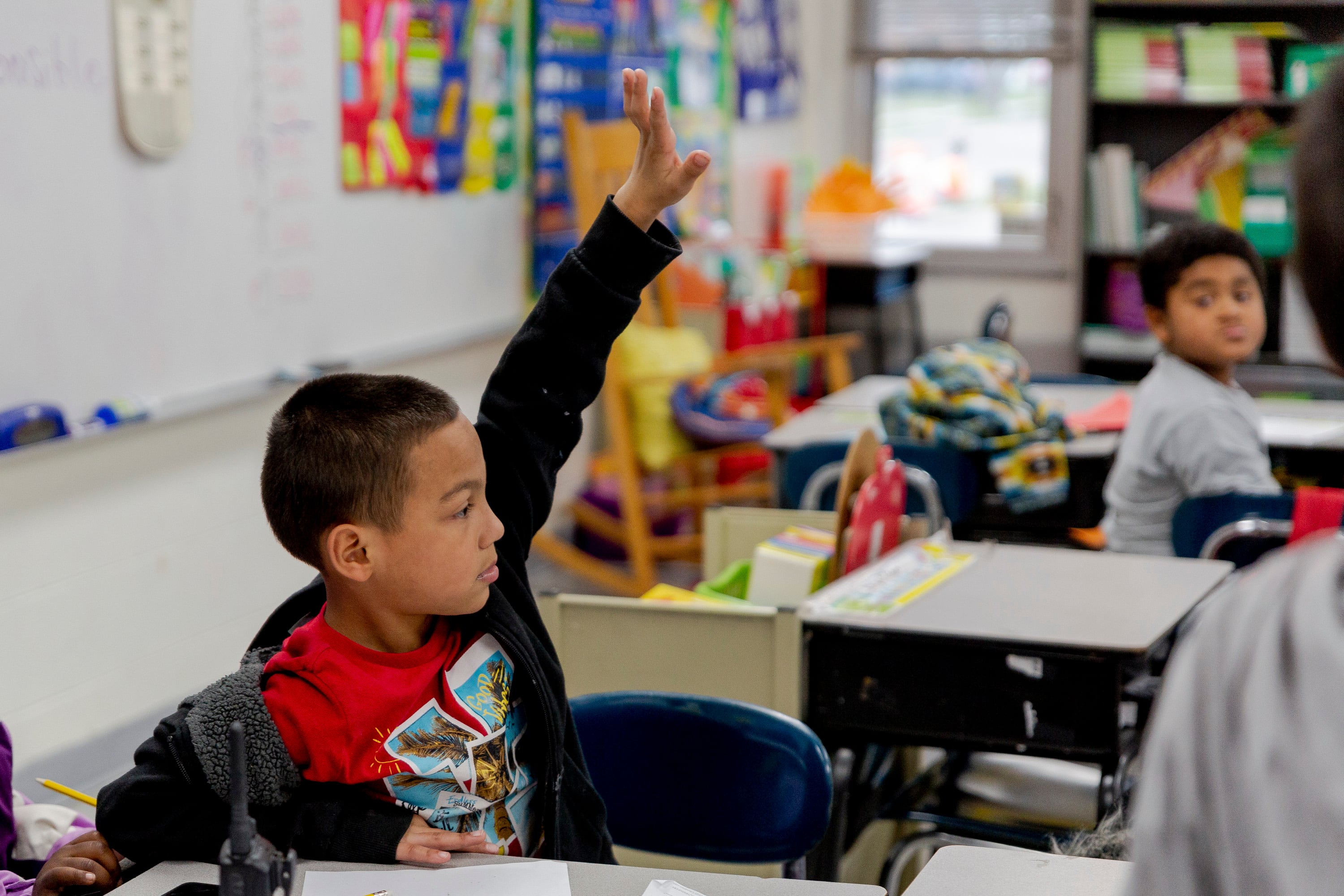A new report on Michigan’s struggling education system says dramatic change is needed to stem academic declines and ensure all students are receiving a quality education.
Among the top recommendations in the report: Michigan should adopt a school funding system that is more fair and equitable than the current one, which distributes state funding on a per-pupil basis but has provisions that still allow for wide disparities in spending between poorer and wealthier districts.
In the report released Tuesday, the Education Trust-Midwest, an education research and advocacy organization, predicts that Michigan’s academic rankings will decline or stagnate by 2030 in some key areas. The rankings are based on the National Assessment of Educational Progress, an exam taken by a representative sample of students in each state.
Michigan’s rankings on this exam have slid over the last decade. And there are troubling signs of what could come, after scores on the Michigan Student Test of Educational Progress and the NAEP showed sharp declines from pre-pandemic levels. On the NAEP, Michigan’s eighth-grade math scores ranked 26th in the country. By 2030, if current patterns hold, Michigan would fall to 29th. In fourth-grade reading, the state ranks 43rd and is projected to remain there in 2030.
As additional evidence of the need for urgent action, the organization points to an October report from researchers at Harvard University and Stanford University that shows how much learning loss occurred in individual districts across the nation since the pandemic. In Michigan school districts with high concentrations of students from low-income homes (Detroit, Saginaw, and Lansing), students lost the equivalent of about a year or more of learning. By comparison, students in wealthier districts such as Northville and Bloomfield Hills lost the equivalent of less than 10% of a school year.
The Education Trust-Midwest report recommends a big shift in how schools are funded, but that would require a big investment by the state. The organization is suggesting, for instance, that the state adopt a funding system that provides between 35% and 100% more in state funding for students from low-income homes, with the higher amounts going to districts with the most vulnerable students. The state funding system already provides additional money for such students, but not nearly as much as the report recommends.
The proposed system for funding schools would address “profound inequities” in Michigan’s current school funding system, said Jen DeNeal, director of policy and research at the organization.
“We know that the experience of being a low-income student in Okemos and Birmingham is different than the experience in the Upper Peninsula or in Lansing,” the report said.
The report also recommends additional funding for students who are English language learners, and students who receive special education services.
The report doesn’t provide a cost estimate, but officials from the organization point to past estimates that suggest such a system could cost an additional $3 billion.
Hours after the Education Trust-Midwest report was released, members of the State Board of Education heard a report from Michigan Department of Education staff and superintendents about why it’s important to move to a funding system that provides more funding for some students, including those from low-income homes and those who receive special education services.
“Even with the recent historic state investments in public education, Michigan schools continue to be underfunded by $2 billion to $5.5 billion annually,” Kyle Guerrant, a deputy superintendent with the state education department, told board members.
Schools receive state and federal funding for special education students, but it doesn’t fully fund those costs. That leaves schools shifting money out of their general fund budgets to help cover the cost of their special education programs.
Wanda Cook-Robinson, superintendent of the Oakland Schools intermediate school district, which provides a range of educational services to local districts, said schools in communities such as Pontiac and Hazel Park have higher needs.
“If you’re a local district and you happen to have a higher number of students who have challenges, you go to your general education budget and you fill that gap,” she said.
In addition to the funding recommendations, the Education Trust-Midwest researchers are also calling for using federal COVID relief dollars to provide intensive tutoring and extended learning time; strengthening early childhood for the most needy children; prioritizing teacher recruitment and retention; ensuring all students have access to rigorous coursework; and identifying students with dyslexia so they have the support they need.
You can read all of the recommendations and the full report here.
Lori Higgins is the bureau chief at Chalkbeat Detroit. You can reach her at lhiggins@chalkbeat.org.






